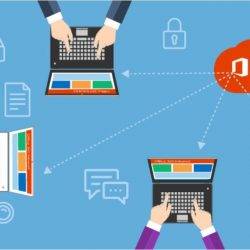July 15, 2019
Search Results for: employee engagement
June 20, 2019
The case for a shorter working week
by Shainaz Firfiray • Comment, Wellbeing
 UK employees have the longest working week compared to other workers in the European Union. But, despite the long hours, recent studies have shown this does not make the UK a more productive nation. An analysis by the Trade Union Congress on working hours and productivity found that, while UK full-time staff worked almost two hours more than the EU average, they were not as productive as staff in Denmark who worked fewer hours in the average week. (more…)
UK employees have the longest working week compared to other workers in the European Union. But, despite the long hours, recent studies have shown this does not make the UK a more productive nation. An analysis by the Trade Union Congress on working hours and productivity found that, while UK full-time staff worked almost two hours more than the EU average, they were not as productive as staff in Denmark who worked fewer hours in the average week. (more…)
June 12, 2019
People can hit career dead end in their fifties
by Neil Franklin • News, Workplace
 With a rising retirement age and the prediction that by 2020, a third of UK workers will be aged 50 or over, new research from job board Totaljobs and recruitment firm Robert Walters found that many workers in their 50s find their career options and development opportunities are extremely limited.
With a rising retirement age and the prediction that by 2020, a third of UK workers will be aged 50 or over, new research from job board Totaljobs and recruitment firm Robert Walters found that many workers in their 50s find their career options and development opportunities are extremely limited.
June 5, 2019
C-suite reskills to face challenge of disruption
by George Eltringham • News, Work&Place
 An emerging super-group of employees and consumers in the UK is adding intense pressure to already challenged C-suite leaders who are navigating tough economic, technological and geo-political environments – further threatening company growth, a new Accenture (NYSE: ACN) study finds. With nearly three-quarters (73 percent) of these powerful stakeholders believing they have the potential to destroy company value in the long term, the C-suite understands the need to respond. (more…)
An emerging super-group of employees and consumers in the UK is adding intense pressure to already challenged C-suite leaders who are navigating tough economic, technological and geo-political environments – further threatening company growth, a new Accenture (NYSE: ACN) study finds. With nearly three-quarters (73 percent) of these powerful stakeholders believing they have the potential to destroy company value in the long term, the C-suite understands the need to respond. (more…)
May 31, 2019
The far reaching impact of empathy in the workplace
by Beverley Nicholas • Comment, Workplace
 The average career length is 50 years, and according to Gallup’s State of The Global Workplace report, during this time only 1 in 10 people are actively engaged. This illustrates that within the current landscape there is a need for companies to actively pursue strategies to better engage their employees. Embedding empathy in working culture is one way of achieving actively-engaged workers but it also has the added benefit of increasing productivity and business growth. This was revealed by a piece in the Harvard Business Review, which highlighted the top ten most empathetic companies outperformed the bottom ten by at least 50 percent in productivity, earnings and growth. (more…)
The average career length is 50 years, and according to Gallup’s State of The Global Workplace report, during this time only 1 in 10 people are actively engaged. This illustrates that within the current landscape there is a need for companies to actively pursue strategies to better engage their employees. Embedding empathy in working culture is one way of achieving actively-engaged workers but it also has the added benefit of increasing productivity and business growth. This was revealed by a piece in the Harvard Business Review, which highlighted the top ten most empathetic companies outperformed the bottom ten by at least 50 percent in productivity, earnings and growth. (more…)
May 30, 2019
Relationships with coworkers matter most for wellbeing
by George Eltringham • News, Wellbeing
 A third of your life is spent at work, but what determines your workplace well-being? That’s the question that Dr. Martin Boult, Senior Director Professional Services & International Training, The Myers-Briggs Company, asked before starting a three-year international study on workplace wellbeing. His new report, titled “Wellbeing in the Workplace” from The Myers-Briggs Company explores the most effective activities for enhancing well-being and its benefits for both people and organisations. (more…)
A third of your life is spent at work, but what determines your workplace well-being? That’s the question that Dr. Martin Boult, Senior Director Professional Services & International Training, The Myers-Briggs Company, asked before starting a three-year international study on workplace wellbeing. His new report, titled “Wellbeing in the Workplace” from The Myers-Briggs Company explores the most effective activities for enhancing well-being and its benefits for both people and organisations. (more…)
May 17, 2019
Study examines consequences of workplace bullying
by Neil Franklin • News, Wellbeing
 New research reveals how frequently being the target of workplace bullying not only leads to health-related problems but can also cause victims to behave badly themselves. (more…)
New research reveals how frequently being the target of workplace bullying not only leads to health-related problems but can also cause victims to behave badly themselves. (more…)
May 3, 2019
Is stress killing creativity and innovation in your organisation?
by Alf Rehn • Comment, Wellbeing
 Around 90 percent of CEOs state that they are displeased with returns of their investments into innovation. Companies invest in innovation projects, hire innovation consultants, run innovation workshops, and send their best and brightest to conferences and courses on innovation, yet fail to see the magic appear. Angered by this, many companies double down, throwing yet more money on innovation, only to see that returns fail to appear.
Around 90 percent of CEOs state that they are displeased with returns of their investments into innovation. Companies invest in innovation projects, hire innovation consultants, run innovation workshops, and send their best and brightest to conferences and courses on innovation, yet fail to see the magic appear. Angered by this, many companies double down, throwing yet more money on innovation, only to see that returns fail to appear.
April 25, 2019
UK workplace happiness score has dropped below global average
by Marie Hillen • News, Wellbeing, Workplace
 The UK now ranks tenth globally when it comes to happiness in the workplace. Austria (690), Spain (682), United States (719), France (672) and Germany (675) are all above the UK in rating workplace happiness. To date, over 10,000 people globally have taken the free Workplace Happiness Survey by Engaging Works which aims to provide practical and personalised advice to help improve wellbeing at work and to increase productivity and overall happiness within the workplace. The Workplace Happiness Survey asks 26 questions and then delivers a score out of 1000.
The UK now ranks tenth globally when it comes to happiness in the workplace. Austria (690), Spain (682), United States (719), France (672) and Germany (675) are all above the UK in rating workplace happiness. To date, over 10,000 people globally have taken the free Workplace Happiness Survey by Engaging Works which aims to provide practical and personalised advice to help improve wellbeing at work and to increase productivity and overall happiness within the workplace. The Workplace Happiness Survey asks 26 questions and then delivers a score out of 1000.
April 17, 2019
What to expect and not to expect from an Office 365 intranet
by Sergey Golubenko • Company news, Technology
 According to the latest report by Nielsen Norman Group, Office 365 is one of the most popular platforms for intranets. Providing a rich toolset, it helps to build multifunctional and eye-catching corporate intranets that improve employee collaboration and communication and streamline business processes. Let’s see whether an Office 365 intranet is as good as described and try to look through its reported benefits with a cool head. (more…)
According to the latest report by Nielsen Norman Group, Office 365 is one of the most popular platforms for intranets. Providing a rich toolset, it helps to build multifunctional and eye-catching corporate intranets that improve employee collaboration and communication and streamline business processes. Let’s see whether an Office 365 intranet is as good as described and try to look through its reported benefits with a cool head. (more…)
April 9, 2019
Personal financial worries are increasing workplace stress
by George Eltringham • News, Wellbeing
 Employers need to understand more about the impact of personal financial worries on workplace mental health, but are struggling to agree best practice standards to address the issue, new research from MetLife UK claims. More than six out of 10 (61 percent) senior HR executives have seen a rise in financial wellbeing issues affecting employee mental health and work performance, the nationwide study from MetLife UK suggests. (more…)
Employers need to understand more about the impact of personal financial worries on workplace mental health, but are struggling to agree best practice standards to address the issue, new research from MetLife UK claims. More than six out of 10 (61 percent) senior HR executives have seen a rise in financial wellbeing issues affecting employee mental health and work performance, the nationwide study from MetLife UK suggests. (more…)

























July 15, 2019
The importance of self care for mental health
by Christine Husbands • Comment, Wellbeing